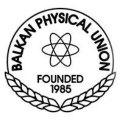Speaker
Description
Distance teaching in an electronic environment involves the application of different pedagogical approaches and methods than those used in traditional face-to-face teaching and interaction with students. At the same time, unequal opportunities for students to learn fully from a distance in an electronic environment and the lack of adequate adaptation of the distance learning process to their needs can provoke a number of adverse consequences in terms of their motivation to learn and academic achievement.
Therefore, in the context of the present study, we consider the specific attitudes, behaviors and practices of teachers related to the process of teaching during distance learning. A questionnaire was constructed and used in the study including two groups of questions. The first group aims to allow assessment of:
- practices for adapting the learning process to the needs of students;
- stimulating students to participate in the construction of knowledge;
- models of group learning through interaction between students;
- practices for monitoring the results of students' work and their progress;
The second group of questions examines how teachers evaluate their efforts related to specific aspects of distance learning in comparison to the traditional work in face-to-face form - main problems and challenges of technical, didactic and psychological nature.
Nearly 83% of teachers find significant differences between the way of teaching in an electronic environment compared to the face-to-face learning process. At the same time, the majority of them continue to emphasize to a large extent practices that are similar to traditional teaching methods in the classroom - presenting and explaining learning content online during a synchronous lesson, setting of tasks for independent work and verification of results, conducting tests.
During distance learning the vast majority of teachers often used procedures for formative evaluation of student achievement and progress. Data on approaches used to assessing students show that quantifying is still the most common way of evaluation of the students’ work and performance as well as of their achievements and knowledge. The assessment of students was carried out mainly through online tests. Most often, students took online tests (88%), and 75% received grades for their participation during online classes. About 81% received evaluations for the implementation of projects, 56% - feedback or quantitative evaluation for the implementation of their homework.
It can be summarized that in the school year 2021/2022 there are more sustainable pedagogical practices related to the conduct of distance learning in an electronic environment compared to the previous school year, which probably largely reflects the accumulated experience of schools and teachers for work in such a format. Participation in various qualification activities related to the organization and conduct of the learning process in an electronic environment leads to better results in the application of various methods and approaches to stimulate student activity. Teachers who have participated in such trainings in the last two years are relatively more active in using various constructivist elements in their teaching in an electronic environment than their counterparts who have not participated in such trainings.

